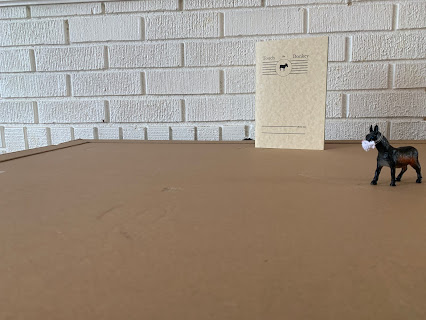Hugh Thomas is a poet and translator living in Montréal, where he teaches mathematics at UQAM. His first solo book of poetry, Maze, was published by Invisible Publishing in spring 2019. Other translations from this project appeared in the online journals long con and periodicities.
His “Five poems from Hauge” appear in the thirty-second issue of Touch the Donkey.
Q: Tell me about the project “Hauge.”
A: This project consists of defective translations of poems by Olav Hauge. Hauge was one of the leading Norwegian poets of the mid-twentieth century. I started with the text of the poem in Norwegian, and then tried to “translate” it somehow, based on what the words sound like, on guesses, or occasionally based on the actual Norwegian meaning. Jason Heroux described the translations as what these poems would see if they looked in a funhouse mirror, and that is a great analogy.
Q: How do these pieces compare to some of the other work you’ve been doing lately?
A: As you know, I’ve done a lot of work with various kinds of fake translation (including some which you’ve published). This project has been interesting because for the most part, the Hauge texts I was using are ones I was already familiar with in English translation, or else ones whose literal sense I was able to figure out (despite my limited knowledge of Norwegian). In this project, I’ve tried to be open to letting the literal meaning of the original poem be one of the aspects that I’m working with in constructing my translations.
Q: What first prompted your interest in what you call “fake translation”?
A: I remember experimenting with fake translation when I was at university in the early nineties, so it’s been an interest of mine for quite some time. Back then, I was excited about the idea of translation, but it turned out to be really hard. I wanted the fun of translation without either the hard work of getting good at another language, or the hard work of trying to match effects between two different languages.
Q: One could argue that your approach with the “fake translation” is comparable to a kind of close-reading response poem—a combination of, I would presume, responding to word shape, sound, cadence and potential meaning—and that you could easily return to the same source poem every couple of years and return with an entirely different result. When responding to a poem in another language, what do you feel your relationship is, or even responsibility to, that original poem in a language you can’t understand?
A: I think my main responsibility is not to be boring. That may not sound like a responsibility to the original text, but in fact, I think it is. The poems I am translating have a certain charge of energy, and the least responsible thing I could do would be to provide a flat translation, conveying the literal meaning with none of the energy. Any kind of energetic response is more appropriate than that.
I do think about other kinds of responsibility, at least sometimes. With Hauge, I’m happy to be able to tell people “Look, these poems are also out there in perfectly competent English translations, and if that’s what you want, I encourage you to look those books up.” And, really, it would add something for the reader of my messed-up translations to take a look at conventional translations as well. Though hopefully it’s not necessary.
Q: With a handful of published poetry chapbooks and trade collections under your belt, how do you feel your work has developed? Where do you see your work headed?
A: I have gotten more interested in trying to keep on going with one idea for a while, for example, translating a bunch of Hauge poems, rather than just one. I think in the past, I would have felt like either I should translate just one, or I should translate all of them, and the latter would be impossible. So once I had translated one, I would feel like I had to do something else instead of trying to carry on. I think I now have a bit more willingness for my process to be visible in the final work. So, with the Hauge poems, I translated some and not others, as I happened upon them, and that’s okay. That may seem really obvious! But in the past, I think I would have felt like I had to erase that trace of my history from the final result of the poems.
Q: Do you find your work in “fake translation” impacts at all on the other kinds of writing you’ve been doing? Is there any kind of cross-influence, even through working a translation from a language you don’t actually know?
A: I’m very interested in the way the source material does somehow bleed into and invigorate what I’m doing, even if I don’t know how. It might seem like what I’m doing isn’t really engaging with the source at all, but I can tell you that I have tried translating a lot of poems and it hasn’t “worked”. It feels like there is some kind of connection that has to be made. And in fact, maybe if we’re being honest, the same thing is true when we’re reading poems in a language we know well: there are poems that are just fine, but we don’t connect with them. With a poem in a language we know, we may not notice the difference between connecting and not connecting so easily, because we do at least understand the words, but I would argue that that’s the least important thing.
Q: Finally, who do you read to reenergize your own work? What particular works can’t you help but return to?
A: To avoid embarking on an infinite answer, let me just say Frank O’Hara.

No comments:
Post a Comment
Note: Only a member of this blog may post a comment.